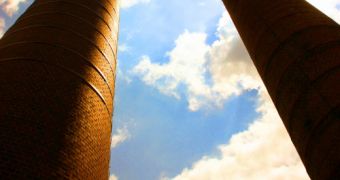While most climatologists argue that the onset of the human influence on our planet's atmosphere began with the Industrial Revolution, some 200 years ago, there are those who say that we began influencing our climate far earlier than that, when industrial-sized rice crops filled the plains of Asia and massive numbers of trees were burnt in Europe, to make way for civilization. The latter approach to studying global warming is backed up by increasing numbers of scientists, as well as by the latest sophisticated computer simulations.
"This challenges the paradigm that things began changing with the Industrial Revolution. If you think about even a small rate of increase over a long period of time, it becomes important," argues Stephen Vavrus, a climatologist working with the University of Wisconsin-Madison's Center for Climatic Research and the Nelson Institute for Environmental Studies.
"No one disputes the large rate of increase in greenhouse gases with the Industrial Revolution. The large-scale burning of coal for industry has swamped everything else. Between 5,000 and 8,000 years ago, both methane and carbon dioxide started an upward trend, unlike during previous interglacial periods," adds John Kutzbach, also a scientist at Wisconsin-Madison.
"We're at a very favorable state right now for increased glaciation," says Kutzbach. "Nature is favoring it at this time in orbital cycles, and if humans weren't in the picture it would probably be happening today," he says.
"With every feedback we've included, it seems to support the hypothesis (of a forestalled ice age) even more. We keep getting the same answer," explains Vavarus. All computer simulations that were updated with the new suspicions say that indeed the first settlements and the early onset of agriculture are responsible for delaying the start of a new glacial age, which the Earth undergoes once every 100,000 years, for the last million years.

 14 DAY TRIAL //
14 DAY TRIAL //